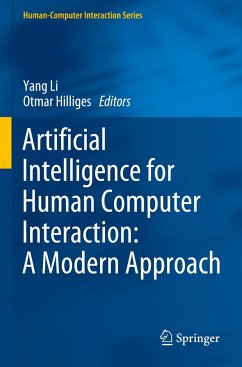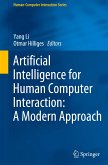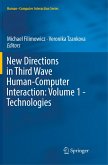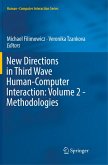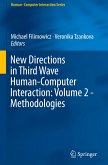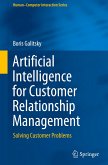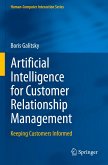This edited book explores the many interesting questions that lie at the intersection between AI and HCI. It covers a comprehensive set of perspectives, methods and projects that present the challenges and opportunities that modern AI methods bring to HCI researchers and practitioners. The chapters take a clear departure from traditional HCI methods and leverage data-driven and deep learning methods to tackle HCI problems that were previously challenging or impossible to address.
It starts with addressing classic HCI topics, including human behaviour modeling and input, and then dedicates a section to data and tools, two technical pillars of modern AI methods. These chapters exemplify how state-of-the-art deep learning methods infuse new directions and allow researchers to tackle long standing and newly emerging HCI problems alike. Artificial Intelligence for Human Computer Interaction: A Modern Approach concludes with a section on Specific Domains which covers a set of emerging HCI areas where modern AI methods start to show real impact, such as personalized medical, design, and UI automation.
It starts with addressing classic HCI topics, including human behaviour modeling and input, and then dedicates a section to data and tools, two technical pillars of modern AI methods. These chapters exemplify how state-of-the-art deep learning methods infuse new directions and allow researchers to tackle long standing and newly emerging HCI problems alike. Artificial Intelligence for Human Computer Interaction: A Modern Approach concludes with a section on Specific Domains which covers a set of emerging HCI areas where modern AI methods start to show real impact, such as personalized medical, design, and UI automation.

